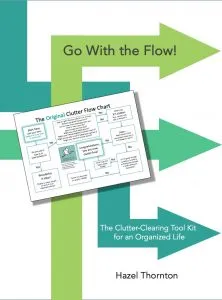Organized Charitable Giving
 Are you deluged – all year long, but particularly as the year comes to a close – by charitable giving solicitations? Does your heart go out to every cause? Do you feel obligated to donate? Wish there were a better way? Here are my suggestions for organized charitable giving, with personal examples:
Are you deluged – all year long, but particularly as the year comes to a close – by charitable giving solicitations? Does your heart go out to every cause? Do you feel obligated to donate? Wish there were a better way? Here are my suggestions for organized charitable giving, with personal examples:
A charitable giving system allows you to ignore additional requests with a satisfied mind and heart. Share on X
1. Determine Your Charitable Giving Budget
Charities will nickel and dime you to death if you let them. If you decide how much you can afford to give each year, and stick to your budget, you will feel better about giving.
2. Select Your Favorite Causes
If you have a soft spot for animals, by all means donate to groups that help animals. But you don’t have to donate to every animal charity! Pick one or two. Your donations will make more of an impact that way.
How I give: My charitable giving is directly linked to remembering people who were important in my life and have passed away. The charities I give to in their honor were either their own favorites, or causes that remind me of them. Examples: I donate to Nature Conservancy for my Mom, because it was her favorite and she enjoyed visiting their nature preserves. I donate to American Cancer Society in the name of a dear friend who died of cancer.
3. Schedule Your Giving
If you are an end-of-the-year giver, that’s fine. Just don’t forget to do it! If you are concerned about tax deductions, sit down and actually write your checks (or make online payments, like I do) before the year slips away. Schedule an annual reminder on your calendar. Or, perhaps a monthly plan would work better for you. Divide your charitable giving budget by 12 and rotate donations among the charities you have chosen.
When I give: I make donations on my loved ones’ birthdays as a way of remembering them. I mark them on my calendar and disregard mid-year solicitations.
4. Ignore the Rest
You don’t have to donate to every cause, or even to your own favorite charity, every time they ask for more! If you stick to your budget, and to your schedule, you can safely — and with a satisfied mind and heart — discard additional requests without opening them, or say, “I’ve already donated,” when they call you on the phone.
Exceptions I make: If a close living friend or relative is, for example, running a marathon for a good cause and asks directly for a donation, my policy is to always say yes!
Are you deluged with solicitations? Do you have a donation policy or system in place? Please share with us in the comments below!
—————————————————————————
Copyright 2011-2015 by Hazel Thornton, Organized For Life.
Social media links directly to this page are encouraged!
Please contact me for other types of reprint permission.
—————————————————————————
Share this:







Hazel, I’ve been thinking about writing a blog post like this, but now I don’t have to — you’ve said it!
We have September as our month for charitable giving, though I do sometimes respond to appeals at other times, especially in response to a sudden need, such as the Hurricane Sandy devastation, or when asked by a friend to support their project, such as an AIDS ride. Then in October we submit all the details to my husband’s employer, which matches our gifts to most charities. That gives them time to get all the paperwork through before year-end.
We have a strict policy of never responding to telephone solicitations. They often come from paid fundraisers who take a large percentage of funds raised.
Giving this way allows us to feel very good about what we do, even though of course there will always be more to do.
Ha, ha, Margaret….I say that all the time about others’ posts (“Don’t have to write that one now!”), but I don’t think anyone’s ever said it of me. Thanks for your comments!
I agree that natural disasters are a good time to donate. Some, however, might opt to give to Red Cross on an regular planned basis. That’s great that your husband’s employer will match your donations.
My tendency over the last few years is to give only when someone I know is involved in fundraising and it’s a cause I wish to support. I’ve never decided up front how much I want to donate over the course of the year, but that would be a good way to do it. Then I could donate a portion to each of those causes, and if there was money left at the end of the year, give it to a charity of my choosing. Thanks for the inspiration!
People give at different levels and for different reasons (generosity, a personal cause, a tax deduction, etc.). There’s nothing wrong with your method…and nothing wrong with changing it up, either!
This is such at timely post. There seems to be so much need in the world, and it is hard to know how and when to give. It is very much like deciding what to keep… having structure, boundaries and a decision-making rubric always helps. Love it!
You’re right. Good analogy. Thanks, Seana!
Great tips, Hazel. I use a checklist I created to help me know how much I gave the previous year. It worked pretty well. I heard somewhere that it is better to write larger checks once or twice a year instead of smaller checks several times a year. It gives more back to the charity after overhead expenses. Thanks for sharing.
Good point, Sabrina. Thanks for the additional tip!
I have my favorite charities that I give to and then like you said, I ignore the rest! Thanks for giving us permission to forgo the ones that don’t speak to us or fit in our budget. I’m also a big fan of giving charitable donations for people in lieu of gifts. For our wedding our ‘favors’ were donations to the American Cancer Society.
I find that a large part of my job consists of giving permission! I even wrote a blog post about it. Thanks for the comment, Sarah!
These are great tips Hazel! It’s hard to say no sometimes to charities but when you have a plan it definitely makes it easier because you know what you’ve decided ahead of time.
Thanks, Hilda!
Hi Hazel,
I always appreciate reading your newsletters, and this topic is one near and dear to me.
As a frequent charitable giver, here are a few (or maybe more than a few) comments, hints, and suggestions, along with a few pet peeve issues:
1) IRS allowable 2021 allowable charitable contributions >$300/yr single or $600/couple must be itemized.
2) I favor charities that put food in people’s stomachs or help the destitute, eg., food banks, IRC (International Rescue Committee), homeless, etc. I also give small ($20) annual donations to free websites such as Wiki, Mozilla, Snopes, since so few users give. Esp. if you like ecstatic thank you receipts.
3) Prefer to donate during “off season,” eg., Feb, when contributions are fewer; or use monthly auto-debit, which helps charities plan ahead (request no more mailings or further solicitations). Request charities not to share your name.
4) Phone charities are bottom ranked charities and not rarely, outright scams. Just say “No thank you,” and hang up. Period. Also lots of scams around natural disaster charities, eg., where did private Katrina money go. See IRS warning.
5) Large well-known charities have large donor bases, high overheads, expenses, carpets, and executive salaries, and can be wasteful. I prefer charities that work on a shoe string.
Use Charity Navigator (itself a charity) for detailed ratings. Scroll to bottom to check CEO salaries.
5) Eliminate unsolicited catalogues, mailings using the https://www.dmachoice.org/ link for a small fee. You can also use it block some larger charities. Some restrictions apply.
6) Give to charities rather than contrived gifts/clutter during present-giving times. It makes people happy.
7) I found your suggestion to return envelopes with “Already gave” to be actionable, and hopefully a clutter reducer! Will just retain the receipts and send back.
Enough said. Hope this is helpful.
Best regards, Hazel
Cora Schlesinger
Jungle Care RVA
Lots of good tips! Thanks, Cora!